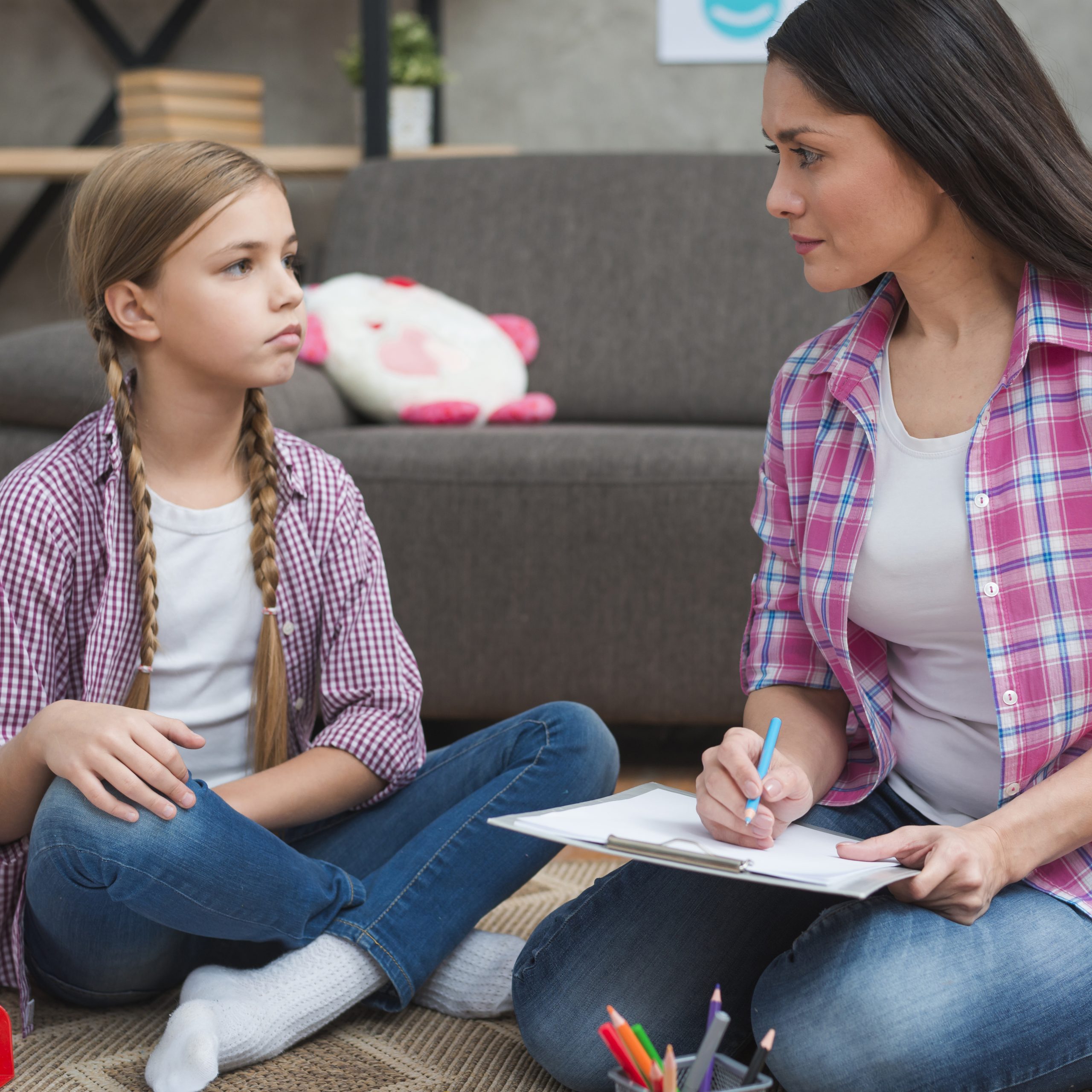Navigating the complex waters of parenting doesn’t end when your child turns 18. In fact, as a seasoned parent and relationship coach, I’ve observed that the challenges often intensify as children transition into adulthood.
The decisions they make during this phase can have lasting impacts, and it’s not uncommon for parents to feel helpless or uncertain when their grown children make choices that seem unwise or harmful.
In this article, we’ll delve into practical, compassionate strategies for dealing with such situations, drawing from both professional insights and personal experiences.
Understanding Your Role as a Parent of an Adult Child

The Shift from Direct Control to Influence
When your child was younger, your role was more about direct guidance and setting boundaries. However, as they grow older, this dynamic shifts. It’s crucial to recognize that your adult child is now responsible for their own decisions. This doesn’t mean you become irrelevant; rather, your influence takes on a new form. It’s about offering wisdom and support, rather than direct control. For more insights on this transition, check out how to parent grown children.
Respecting Their Autonomy
It’s a delicate balance between expressing concern and respecting their autonomy. Remember, they are adults, and part of their development involves making their own choices, even if they’re not the ones you would make. This respect for their independence is crucial for maintaining a healthy relationship.
Communicating Effectively with Your Grown Child
-
Choosing the Right Moment
Timing is everything. Initiating a conversation when emotions are high can lead to defensiveness or conflict. Wait for a calm moment when both of you are more receptive to a meaningful dialogue.
-
Using “I” Statements
Instead of accusatory “you” statements, use “I” statements to express your feelings. For example, “I feel worried when I see you making these choices,” instead of “You’re always making bad decisions.” This approach is less likely to trigger a defensive response.
-
Listening Actively
Active listening is key. This means truly hearing their perspective without immediately jumping to advice or judgment. Sometimes, they might just need a sounding board rather than direct guidance.
When to Step In and When to Step Back
Assessing the Severity of the Situation
Not all bad decisions are equal. Some might be minor and part of the learning process, while others could have serious consequences. It’s important to assess the severity of the situation. If their decision poses a risk to their safety or well-being, it may warrant a more direct intervention.
Offering Guidance vs. Taking Control
Offer guidance and share your concerns, but avoid the urge to take control or fix the situation for them. Encourage them to think critically about their choices and consider the potential outcomes. For more on striking this balance, explore the concepts of permissive parenting and uninvolved parenting.
Supporting Their Growth and Learning from Mistakes
Encouraging Responsibility
Encourage your child to take responsibility for their decisions. This means allowing them to face the natural consequences of their actions, which is a powerful learning tool.
Providing Emotional Support
Be there for them emotionally. Offer your support and understanding, even when you don’t agree with their choices. This unconditional support is crucial for their emotional well-being.
Learning Together
Every mistake is an opportunity for growth, not just for your child, but for you as a parent. Reflect on these experiences and consider how they can inform your future interactions.
Parenting an adult child who makes bad decisions is a journey that requires patience, understanding, and adaptability. By respecting their autonomy, communicating effectively, and offering the right balance of guidance and support, you can help them navigate their path to maturity. Remember, it’s not just about steering them away from bad decisions; it’s about empowering them to make better ones in the future.
Navigating Serious Issues: When Bad Decisions Have Major Consequences
As a parent and coach, I’ve encountered numerous situations where grown children make decisions that go beyond typical mistakes and venture into potentially harmful territory. These scenarios require a nuanced approach, balancing concern with respect for their autonomy. We’ll delve into strategies for handling such situations, drawing from real-life experiences and professional practices.
Identifying Serious Issues
-
Recognizing Red Flags
Serious issues often come with red flags, such as substance abuse, legal troubles, or harmful relationships. Recognizing these signs early can be crucial in addressing the problem effectively. For instance, if you’re dealing with a younger child showing early signs of risky behavior like a 9-year-old daughter who smokes, intervening early is key.
-
Understanding the Underlying Causes

Often, bad decisions are symptoms of deeper issues. It could be stress, peer pressure, mental health challenges, or unresolved emotional problems. Understanding these underlying causes is essential for providing appropriate support.
Approaching the Conversation
-
Creating a Safe Space
Start by creating an environment where your child feels safe and understood. This means approaching the conversation without judgment and being open to listening to their side of the story.
-
Being Direct but Compassionate
While it’s important to be direct about your concerns, it’s equally important to be compassionate. Express your worries clearly but ensure that your child knows you’re coming from a place of love and concern.
Offering Support and Resources
-
Guiding Them to Professional Help
In cases of serious issues, professional help may be necessary. This could include therapy, counseling, or medical intervention. Encourage them to seek help and offer to support them through the process.
-
Providing Emotional and Practical Support
Your role as a parent also involves providing emotional support. Be there to listen, offer advice when asked, and help them navigate the practical aspects of dealing with the issue, such as finding a therapist or dealing with legal matters.
Setting Boundaries and Expectations

-
Establishing House Rules for Adult Children
If your grown child lives with you, it’s important to establish clear house rules. This helps in maintaining order and respect in the household. For ideas on setting these boundaries, consider reviewing a list of house rules for 18-year-olds.
-
Communicating Consequences
Be clear about the consequences of their actions, especially if they’re living under your roof. This isn’t about punishment but about teaching responsibility and respect for shared spaces and relationships.
Encouraging Positive Behaviors
-
Highlighting Strengths and Achievements
Focus on their strengths and achievements. Encouraging positive behavior is often more effective than just focusing on the negative. This approach can boost their self-esteem and motivate them to make better choices.
-
Words of Encouragement
Sometimes, a few words of encouragement can go a long way in helping them feel supported and understood. These words can be a powerful tool in guiding them towards positive change.
Embracing Patience and Persistence
Parenting a grown child through difficult times requires patience and persistence. Change doesn’t happen overnight, and there will be setbacks. It’s important to stay committed and supportive throughout the journey.
Self-Care for Parents: Maintaining Your Well-being While Supporting Your Grown Child

In the journey of parenting an adult child through challenging times, it’s easy to neglect your own well-being. However, taking care of yourself is not just vital for your health; it’s crucial for being an effective support system for your child. We’ll explore the importance of self-care for parents and provide practical strategies to ensure you’re looking after yourself while helping your grown child.
Understanding the Impact on Parental Well-being
Recognizing the Emotional Toll
Watching your grown child struggle or make harmful decisions can be emotionally draining. It’s normal to experience a range of emotions, from worry and frustration to guilt and sadness. Acknowledging these feelings is the first step in managing them.
The Risk of Burnout
Constant worry and stress can lead to burnout, leaving you exhausted and unable to provide the support your child needs. It’s important to recognize the signs of burnout and take steps to address it.
Strategies for Parental Self-Care
-
Setting Emotional Boundaries
While it’s natural to be emotionally invested in your child’s well-being, setting boundaries is essential. This means giving yourself permission to step back when needed and not taking on their problems as your own.
-
Finding Support for Yourself
Seeking support is not just for your child. As a parent, you also need a support system. This could be friends, family, support groups, or professional counseling. Sharing your experiences and feelings with others who understand can be incredibly therapeutic.
-
Engaging in Relaxation and Stress-Relief Activities
Make time for activities that help you relax and de-stress. This could be anything from exercise, meditation, hobbies, or simply taking time to read or watch a favorite show. Prioritizing these activities is not selfish; it’s necessary for your mental health.
-
Maintaining Physical Health
Your physical health is closely linked to your mental well-being. Ensure you’re eating well, getting enough sleep, and exercising regularly. Neglecting your physical health can exacerbate stress and emotional fatigue.
Balancing Parenting and Personal Life
-
Creating Time for Yourself
It’s important to create time for yourself, away from your parenting responsibilities. This could be setting aside certain hours for self-care or engaging in activities that you enjoy, independent of your role as a parent.
-
Keeping Perspective
Remember that your identity is not solely defined by your role as a parent. Keeping perspective on your own life goals, interests, and relationships is crucial for maintaining a balanced life.
The Importance of Positive Thinking
-
Focusing on the Positives
In challenging times, it’s easy to get caught up in negative thinking. Try to focus on the positives, both in your life and in your child’s life. This doesn’t mean ignoring the problems, but rather balancing your perspective.
-
Practicing Gratitude
Practicing gratitude can significantly improve your mental outlook. Regularly reflecting on things you’re grateful for, even small everyday joys, can help shift your focus from stress and worry to appreciation and hope.
Rebuilding and Strengthening Your Relationship with Your Grown Child

After navigating the turbulent waters of dealing with your grown child’s bad decisions, the focus often shifts to rebuilding and strengthening your relationship. This phase is crucial, as it lays the foundation for a mature, respectful, and enduring bond between you and your adult child.
Understanding the Dynamics of an Adult Parent-Child Relationship
Respecting Their Independence
The first step in strengthening your relationship is to fully respect their independence. This means acknowledging their right to make their own choices and lead their own lives, even if you don’t always agree with their decisions.
Transitioning from Authority to Advisor
As a parent of a grown child, your role transitions from being an authority figure to more of an advisor or mentor. This shift is crucial for a healthy adult relationship, where advice and guidance are offered, not imposed.
Effective Communication Strategies
Keeping the Lines of Communication Open
Maintain open and regular communication. This doesn’t mean prying into every aspect of their life, but rather being available and approachable whenever they need support or advice.
Practicing Empathy and Understanding
Try to see things from their perspective. Empathy builds trust and understanding, paving the way for more honest and open communication.
Rebuilding Trust and Repairing Relationships
Acknowledging Past Mistakes
If past conflicts or issues have strained your relationship, it’s important to acknowledge these and work towards resolving them. This might involve apologizing for past mistakes or misunderstandings.
Building Trust Through Actions
Trust is rebuilt through consistent actions. Show your support and reliability through your actions, not just your words.
Encouraging and Celebrating Their Successes
Recognizing Their Achievements
Celebrate their achievements, no matter how small. Recognizing their successes helps build their confidence and reinforces positive behaviors.
Offering Encouragement and Positive Reinforcement
Use words of encouragement and positive reinforcement to motivate them. This can significantly boost their self-esteem and encourage them to continue making good decisions.
Nurturing Mutual Interests and Activities

Spending Quality Time Together
Find activities or interests that you both enjoy and spend quality time together. This can strengthen your bond and create positive memories.
Respecting Their Boundaries
While spending time together is important, it’s also crucial to respect their boundaries and need for space. Balancing togetherness with independence is key in an adult parent-child relationship.
Continuous Learning and Adaptation
Being Open to Learning
Parenting is a continuous learning process. Be open to learning and adapting your parenting style as your child and your relationship with them evolves.
Embracing Change
Accept that your relationship will change over time. Embrace these changes and look for ways to grow and strengthen your bond in each new phase of life.
Conclusion:
parenting a grown child through bad decisions and beyond is a journey filled with challenges, learning, and growth.
By focusing on effective communication, mutual respect, and emotional support, you can build a strong, enduring relationship with your adult child.
Remember, the goal is not to control their journey but to be a supportive, loving presence as they navigate the complexities of adulthood.



